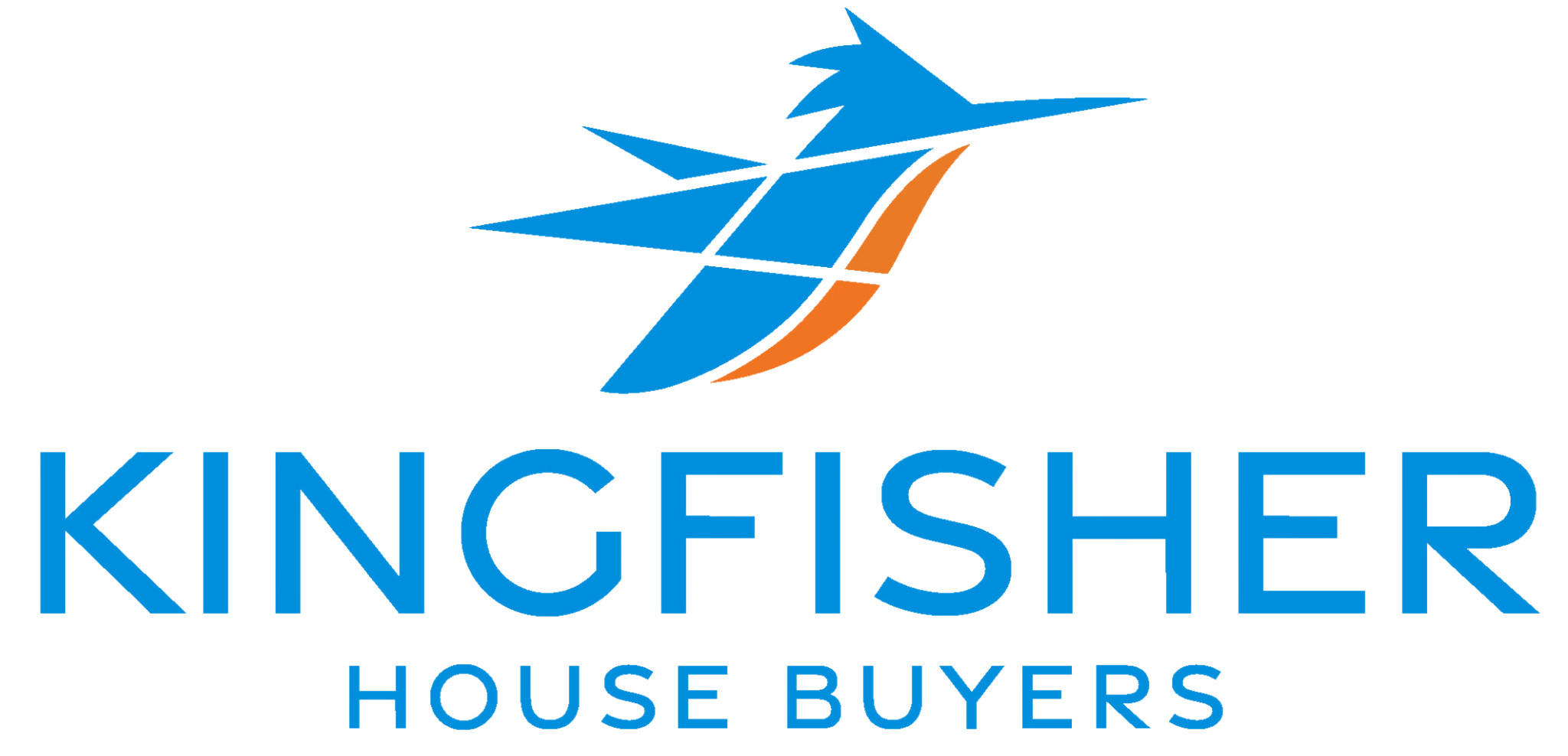
Understanding the Real Estate Market in Virginia
Understanding the real estate market in Virginia is crucial for successfully mastering house sale contingencies. The Virginia real estate landscape is characterized by diverse property types, ranging from urban condos in cities like Arlington and Alexandria to sprawling suburban homes in Fairfax County and rural properties in regions such as the Shenandoah Valley.
Market circumstances in various places might be very different from one another. This is because of population changes, economic growth, and job growth. Sellers generally have the upper hand in hot markets like Northern Virginia, where demand is high because of how close it is to Washington, D.C. This could make it hard for buyers to add a lot of conditions. On the other hand, in markets that are more balanced or favor buyers, as those in sections of Southern Virginia or the Tidewater region, buyers may have more leverage to negotiate terms that are connected to financing, appraisals, and house inspections.
Understanding local market trends helps buyers and sellers decide which contingencies are appropriate based on competition levels and prevailing pricing dynamics within specific neighborhoods or counties. This knowledge is essential for crafting strategic offers that protect interests while remaining competitive in the Virginia real estate market.
Factors Affecting Property Values in Different Regions of Virginia
To learn how to deal with house sale conditions, you must know what affects property values in different parts of Virginia. Northern Virginia has greater property values since it is close to Washington, D.C., and there is a lot of demand, economic expansion, and a strong job market.
In contrast, regions such as Southwest Virginia often have lower property values influenced by rural characteristics and slower economic development. Tourism and military presence affect coastal areas like Virginia Beach, contributing to fluctuating real estate prices driven by seasonal trends and defense-related employment.
The Shenandoah Valley is an excellent place for retirees and people looking for a second home since it is cheap and beautiful. This affects demand in a different way than cities do. Local amenities, the quality of the school district, infrastructure improvements, and community safety are all important factors that affect property values across the state.
Understanding these diverse regional dynamics enables real estate professionals to craft effective strategies when navigating contingencies in the Virginia housing market.
Timing the Sale of Your House: When Is the Best Time to Sell?
When dealing with real estate contingencies in Virginia, it’s essential to time the sale of your house right to ensure the deal goes through. The optimum time to sell usually depends on the market, the number of buyers, and the time of year.
Spring often emerges as a prime selling season, attracting more buyers due to favorable weather and school year transitions. However, local market dynamics can also play a significant role; understanding these nuances is essential for Virginia homeowners aiming to maximize their sale price. To sell your Ashland house faster, consider listing during peak buyer activity seasons and leveraging strategic pricing, staging, and marketing to stand out in your local market.
Watching economic indicators like interest rates and job levels can help you determine the best times to sell. Also, knowing about supply and demand in certain communities helps sellers place their property in a good spot to compete.
By leveraging this information, sellers can effectively manage contingencies related to inspections, appraisals, and financing timelines, ultimately influencing the profitability and efficiency of their home sale process in the Virginia real estate market.
How to Choose the Right Realtor in Virginia

Finding the right agent to help you through this complicated market is essential to learning about house sale contingencies in Virginia real estate. A Virginia real estate professional with experience will know all the rules and laws that apply to your area, ensuring your transaction goes smoothly.
It’s essential to find a realtor who specializes in handling contingencies. They can offer invaluable advice on negotiation strategies specific to Virginia’s real estate landscape. Please seek a professional with a strong track record and positive client testimonials highlighting their expertise in managing sales with multiple contingencies.
A real estate professional who lives in Virginia and knows the neighborhoods will also have important market information that will help you plan for possible problems and make wise choices. Communication skills are critical. Pick someone who listens carefully and explains difficult terms in a way you can understand; this will help you feel strong throughout the process.
Prioritizing these qualities when selecting a realtor will significantly enhance your chances of successfully managing house sale contingencies in Virginia’s competitive real estate market. The Kingfisher House Buyers Team brings local expertise, proven negotiation skills, and a client-first approach to help ensure your transaction runs smoothly from start to finish.
Legal Requirements for Selling Property in Virginia
You won’t have a chance if you want to sell property in Virginia and follow the rules. Full disclosure of all material facts regarding the property is one of several state rules that sellers must follow.
Virginia law mandates that sellers provide a Residential Property Disclosure Statement outlining any known defects and environmental hazards. Additionally, if the property is part of a homeowners association (HOA), sellers must furnish an HOA disclosure packet detailing financial obligations and rules governing the community.
Title transfer procedures require a clear title free from liens or encumbrances, typically involving a thorough title search. Engaging with licensed real estate professionals and attorneys can streamline these processes, ensuring all documentation aligns with Virginia’s legal standards.
Adhering to these legal requirements protects sellers from potential disputes and facilitates smoother negotiations during the house sale contingency period.
Pricing Strategies for Homes in the Virginia Market
To be successful in the Virginia real estate market, you need to know what buyers anticipate and what the market is like in your area. Sellers could start by looking at recent sales data in their neighborhood and concentrating on similar homes in size, age, and condition.
This comparative market analysis helps determine a competitive listing price that attracts potential buyers while maximizing return. In Virginia’s diverse real estate landscape, pricing can be influenced by proximity to amenities, school district ratings, and neighborhood desirability.
It’s also crucial to think about how the seasons change. Historically, more people buy in the spring and summer. Making deliberate price changes will help you deal with these changes and make your property more appealing. If you’re looking for a quicker solution, we buy Beaverdam homes, offering sellers a fast and hassle-free alternative regardless of the season.
If you want to set the right price, talking to an experienced real estate person who knows how the Virginia market works can be invaluable. If sellers use these methods correctly, they can handle problems better and raise their chances of a successful transaction.
Tips for Staging Your Home for Sale in Virginia
When preparing to sell your home in Virginia, effectively staging your property can significantly impact your success in the real estate market. Start by decluttering each room to create a clean, spacious environment that appeals to potential buyers.
Focus on enhancing curb appeal, as first impressions are crucial; consider refreshing landscaping, painting the front door, and ensuring the exterior is well-maintained. Inside, neutral colors on walls and decor make it easier for buyers to envision their style in the space.
Highlight key features of the home, such as fireplaces or large windows, by arranging furniture to draw attention to these assets. Ensure optimal lighting throughout the house by combining natural light and well-placed lamps or fixtures.
In Virginia’s diverse real estate market, understanding local buyer preferences can give you an edge; research trends specific to your area and incorporate elements that resonate with those looking for homes similar to yours. Depersonalizing spaces while maintaining warmth and inviting charm can help buyers imagine themselves living in your home.
Preparing Your Home for Open Houses and Showings
When getting your property ready for showings and open houses in the Virginia real estate market, concentrate on making it seem pleasant and attractive. To make it easier for potential buyers to imagine themselves living in the place, begin by clearing out each room.
A thorough cleaning is essential, leaving no corner untouched, from carpets to countertops. Enhancing curb appeal with well-maintained landscaping can make a strong first impression.
Consider neutralizing your home’s color palette with light, fresh paint and welcoming tones that appeal to a broad audience. Ensure all repairs are addressed before showing your home; even minor issues like leaky faucets or squeaky doors can detract from its value in the eyes of buyers.
Staging can play a pivotal role. Strategically arranging furniture and decor to highlight your home’s best features and optimize space flow is key. Pay attention to lighting; open blinds or curtains during showings to maximize natural light and create a bright, airy feel.
As a last step, ensure the temperature is comfortable and add soft aromas like baked goods or fresh flowers to entice customers’ senses while they tour your house.
Marketing Your Home Effectively in a Competitive Market
Effectively marketing your home in Virginia’s competitive real estate market requires a strategic approach highlighting the property’s unique features while leveraging the latest digital tools. To stand out, ensure high-quality photos and virtual tours are available to potential buyers online, capturing the essence of every room and outdoor space.
Utilize social media platforms and real estate websites to reach a broader audience, targeting specific demographics interested in Virginia homes. Staging the property is crucial; it helps buyers envision themselves living there and can significantly impact their purchasing decisions.
Working with a real estate professional with extensive experience and knowledge of the local market will ensure that your home is priced reasonably and placed in the market in the best way possible. Write interesting property descriptions highlighting desirable conditions like flexible closing dates or inspection options. This will appeal to driven buyers who want to feel sure about their purchase.
Implementing these marketing strategies can attract more interest and potentially secure better offers for your Virginia home.
The Role of Technology and Online Listings in Modern Real Estate Sales

In the dynamic landscape of Virginia real estate, technology plays a pivotal role in mastering house sale contingencies. Online listings have revolutionized how properties are marketed and sold, giving buyers and sellers unprecedented access to detailed property information and virtual tours.
These digital tools allow for greater transparency and efficiency, enabling potential buyers to filter through listings quickly based on specific criteria such as location, price range, and contingency terms. Real estate professionals leverage advanced software to track market trends, analyze data, and optimize pricing strategies to effectively meet contingency requirements.
In addition, parties can communicate more easily and quickly using online platforms, which speeds up the negotiating and contract administration processes. The real estate industry in Virginia can benefit from technological advancements that will allow stakeholders to face uncertainties with more certainty and accuracy.
Navigating Contingencies When Selling a House
The key to a smooth real estate transaction when selling a home in Virginia is being prepared for and aware of any potential contingencies. The success or failure of your house sale hinges on your ability to master the art of contingencies, which are conditions that must be satisfied before the sale may go forward.
In Virginia real estate, common contingencies include financing, home inspection, appraisal, and title review. Sellers should proactively address potential issues by thoroughly preparing their property to minimize surprises during the buyer’s inspections or assessments.
It is also important to consider the years of living in the house before selling, since the length of ownership can affect equity, tax implications, and overall profitability. Working closely with a knowledgeable real estate professional can help sellers set conditions and timelines that align with their aims while also ensuring that buyers stay interested.
Understanding local market trends and legal requirements is also essential to anticipating challenges and tailoring strategies accordingly. This proactive approach not only helps avoid hiccups but also fosters a transparent transaction process that benefits both parties involved in the Virginia housing market.
Home Inspection and Appraisal Process Explained
If you want to excel at house sale contingencies in Virginia, you need to know a lot about the home inspection and appraisal process. A comprehensive house inspection is an important part of any property deal since it allows purchasers to find out about any problems with the home before they buy it.
In Virginia, this process involves hiring a licensed inspector to evaluate the property’s condition meticulously, checking for structural integrity, safety hazards, and necessary repairs. The findings from this inspection can lead to renegotiations or requests for repairs, making it essential for buyers and sellers to navigate these discussions adeptly.
Concurrently, the appraisal process holds substantial weight in determining a property’s fair market value and ensuring that it aligns with the agreed-upon purchase price. Lenders rely heavily on appraisals to decide if they will approve financing; thus, any significant discrepancy between the appraisal value and the offer can result in further negotiations or even jeopardize loan approval.
Understanding these processes is crucial to handling contingencies and achieving successful outcomes in real estate transactions in Virginia.
Negotiating Offers: Getting the Best Deal for Your Property
When negotiating offers in the Virginia real estate market, especially when there are conditions for the sale of a house, it’s important to apply good techniques to get the most money for your property. Knowing how complicated contingency clauses work might give you a lot more influence in negotiations.
Sellers should be well-versed in common contingencies such as home inspection, financing, and appraisal contingencies to counter or accept offers that align with their goals adeptly. Crafting a strong counteroffer involves balancing competitive pricing with favorable terms for potential buyers while protecting your interests.
Working closely with a knowledgeable real estate professional experienced in Virginia’s legal requirements and market trends can provide invaluable insights and support during negotiations. Additionally, being open to alternative solutions, such as rent-back agreements or adjusting timelines, can make your property more appealing without compromising price.
The real estate market in Virginia is quite competitive. Still, sellers can increase their chances of getting a reasonable price for their home by keeping lines of communication open and learning about the buyer’s goals.
How to Handle Multiple Offers on Your Virginia Home
When you have more than one offer on your Virginia home, you must carefully consider each one to make the sale go as smoothly as possible. First, look at each buyer’s pre-approval letter and proof of funds to see how financially stable they are. This is important for figuring out if they can close the deal.
Each offer comes with its own set of restrictions, and you should read them carefully because they can affect the time it takes to complete the transaction and your level of comfort. It may be easier to close on an offer if it has fewer conditions attached, like not having to pay for an inspection or appraisal.
It’s also important to look at the anticipated closing dates and see if they fit your move plans. It’s important to talk to potential purchasers through your real estate professional. Working up terms that work for both parties can make the sale more likely to go through.
Engage in open dialogues and remain flexible where possible, especially if one buyer shows strong interest but requires minor adjustments in terms. By prioritizing offers based on a combination of price, terms, and contingencies, you position yourself better in Virginia’s competitive real estate market.
What Is the Home of Choice Contingency in Virginia?
In Virginia real estate, the home of choice contingency is a strategic tool sellers use to ensure they have adequate time to find a new property before fully committing to selling their current home. This contingency allows sellers to accept an offer on their home while retaining the flexibility to locate and secure their next residence, minimizing the risk of being left without suitable housing.
Mastering the use of a home of choice contingency is essential for sellers navigating the competitive Virginia real estate market. It provides peace of mind and can prevent potential disruptions in moving plans. Sellers can confidently list their homes by incorporating this contingency into sales agreements, knowing they have safeguarded their housing needs.
Understanding how to negotiate and implement a home-of-choice contingency effectively will significantly enhance success in managing house sale contingencies within Virginia’s dynamic real estate landscape.
How to Avoid Capital Gains Tax on Sale of House in Virginia?

Understanding how to avoid capital gains tax when selling a house in Virginia can significantly impact your financial outcome. One effective strategy is to take advantage of the primary residence exclusion, which allows homeowners to exclude up to $250,000 of capital gains for single filers and up to $500,000 for married couples filing jointly, provided they have lived in the home for at least two of the last five years.
If you’re nearing these residency thresholds, consider timing the sale strategically. Another approach is to reinvest the proceeds from the sale into another property through a 1031 exchange, although this option is more commonly applicable to investment properties rather than personal residences.
It’s also wise to keep meticulous records of home improvements, as these costs can increase your home’s basis and reduce taxable gains. Consulting with a knowledgeable real estate tax advisor or attorney in Virginia can help navigate these contingencies effectively, ensuring you leverage every available tax benefit while complying with state and federal regulations.
What Is the Contingency Plan for Selling a House?
A contingency plan for selling a house in Virginia real estate involves several strategic steps to ensure a successful transaction. In the competitive Virginia housing market, understanding and Successfully Selling Your Virginia Home With Unpermitted Work can significantly impact the outcome of a property sale.
A typical contingency plan includes provisions for financing, home inspection, appraisal, and sale of the buyer’s existing property. Financing contingencies protect buyers by allowing them to withdraw from the contract if they cannot secure a mortgage.
Home inspection contingencies give buyers the right to negotiate repairs or cancel the deal if significant issues are discovered. Appraisal contingencies safeguard against overpaying, ensuring the property’s value aligns with the agreed purchase price.
Additionally, a home sale contingency becomes crucial when buyers need to sell their current home first. Sellers and buyers must navigate these elements skillfully to avoid pitfalls and delays.
Sellers can close deals smoothly by effectively managing these contingencies in Virginia real estate transactions while minimizing risks associated with unexpected complications or financial setbacks.
What Are the Three Types of Contingencies?
Understanding the three primary types of contingencies in Virginia real estate is crucial for mastering house sale contingencies. The first type is the financing contingency, which allows the buyer to back out if they cannot secure a mortgage loan under specified terms.
This protects buyers from financial risk and ensures they can afford the property. The second type is the inspection contingency, which allows buyers to conduct a thorough inspection of the home.
If significant issues are discovered during this process, buyers can negotiate repairs or withdraw their offer without penalty. Lastly, the appraisal contingency ensures that the property’s appraised value meets or exceeds the purchase price.
Buyers can renegotiate or cancel the contract if an appraisal comes in lower than expected. Buyers and sellers in Virginia real estate transactions can achieve successful outcomes while minimizing potential risks by navigating financing, inspection, and appraisal contingencies.
Understanding these contingencies empowers parties to make informed decisions and enhances negotiation strategies in competitive markets.
| REAL ESTATE LAW | HOME INSPECTOR | MONEY | MORTGAGES | EARNEST MONEY DEPOSIT | EARNEST MONEY |
| REALTOR® | REASON | CASH | FHA | BRIDGE LOAN | PLUMBING |
| HOMEBUYERS | EQUITY | DUE DILIGENCE |
Helpful Virginia Blog Articles
- Taxes On Selling Your Home In Virginia
- Selling An Inherited House In Virginia
- House Sale Contingencies In Virginia
- Attorney Fees For House Closings In Virginia
- Selling A Home With Code Violations in Virginia
- Selling Your Virginia Home With Unpermitted Work
- Selling a Home With Foundation Problems in Virginia
- Understanding Virginia Inheritance Laws
- Sell Your House Below Appraised Value In Virginia
- Paperwork For Selling Your Home By Owner in Virginia
- Selling Your Virginia Home With Tenants
- Virginia’s Rules And Risks For Leaving Your House Vacant

